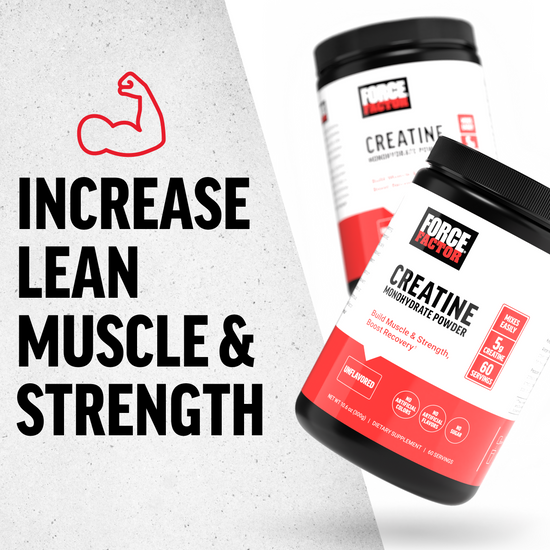The Definitive Guide to Creatine Monohydrate
Table of ContentsSome Known Facts About Creatine Monohydrate.Creatine Monohydrate for BeginnersThe Greatest Guide To Creatine Monohydrate
The vital takeaway is that An intriguing systematic review concluded an adverse relationship between creatine monohydrate supplementation and VO2 max. The writers recognize a risk of bias with the study layouts as a result of a requirement for even more clearness over randomization with almost all researches consisted of. Only three of the nineteen studies completely outlined the evaluation of VO2 max - Creatine Monohydrate.
This varies from athlete to professional athlete. If weight gain with liquid retention is an issue, stop taking creatine 1-2 weeks before competing to balance out fluid retention while maintaining enhanced creatine shops. Some individuals experience intestinal discomfort when taking creatine, such as bloating, cramping, or diarrhea. It is essential to keep in mind that not everyone experiences gastrointestinal distress while taking creatine, and it can typically be handled by readjusting the dose or taking it with meals, as outlined by the International Society of Sports Nutrition.
It's recommended to utilize it in powder type. Worries concerning the long-term impacts of creatine monohydrate supplementation on kidney (kidney) feature have actually been increased. Research studies done by the International Society of Sports Nutrition and Sports Medication program that temporary and long-term use creatine monohydrate within recommended dosages does not risk kidney feature in healthy people.
An Unbiased View of Creatine Monohydrate
None of the researches checked out triathletes. The damaging results reported in the researches associated to weight gain. As discussed, the majority of the research studies utilized a higher-dose loading procedure (20g+/ day) in a brief period that might be balanced out and stayed clear of with a lower dosage (such as 5g/day) for an extensive period.

Allow's look at the major benefits of creatine monohydrate. There is solid, dependable research study showing that creatine boosts wellness.
et al. (2008, July). Putting to relax the myth of creatine supplements leading to muscle pains and dehydration. Fetched from https://pubmed.ncbi.nlm.nih.gov/18184753/Eventbrite Record.(2014). Endurance Sports Participant Research Study. my blog Obtained from https://eventbrite-s3.s3.amazonaws.com/marketing/britepapers/Endurance_Report_Survey.pdf!.?.!Fernndez-Landa, J. et al.(2023, May). Impacts of Creatine Monohydrate on Stamina Performance in a Trained Population: A Systematic Review and Meta-analysis. Beloved Reader: Creatine is a natural compound that the body counts on for a constant supply of energy to the muscles. It is particularly valuable throughout quick ruptureds of extreme, anaerobic activity, such as when raising weights or running a brief range. Creatine is manufactured navigate to this website by the body from a trio of amino acids, primarily by the liver. The substance also is available from dietary resources, mostly red meat, seafood and poultry (Creatine Monohydrate). Most of creatine is saved in the skeletal muscular tissues in a form understood
The Buzz on Creatine Monohydrate
as phosphocreatine, or creatine phosphate. A percentage, less than 5%, is found in the tissues of the brain and testes. Creatine help in the production of adenosine triphosphate, or ATP. Researchers have found that when someone takes creatine supplements while involved in a program of resistance training, such as weight-lifting, it can aid to construct lean body mass. Additional researches into the possible wellness benefits of creatine supplements recommend it may enhance specific blood lipid levels, help in keeping skin elastic and healthy, help in some symptoms of Parkinson's illness and speed healing from muscular tissue overuse and fatigue. A healthy individual with a well balanced diet that includes red meat, poultry and fish and shellfish will certainly get a sufficient supply of creatine. Research study shows that supplements can be practical in making sports gains. Some researches have actually found that making use of a creatine supplement can aid build muscle mass and enhance strength. When absorbed huge amounts, some individuals do report experiencing stomach issues. Just like any kind of dietary supplement, it is essential to speak with your health care company before including creatine to your day-to-day routine. There are numerous types official website of creatine supplements, which can be found in a large range of dosages. Your doctor will aid you review your objectives and can guide you in choosing the appropriate supplement for your needs.(Send your inquiries to [e-mail protected], or create: Ask the Physicians, c/o UCLA Health Sciences Media Relations, 10960 Wilshire Blvd., Suite 1955, Los Angeles, CA, 90024. Numerous individuals take multivitamins daily, despite hills of evidence revealing they don't boost health significantly. Many would be better off taking creatine monohydrate. Yes, creatine is a health supplement. The majority of people, around 69%, are in fact creatine deficient. Also if they never ever raised a weights, they 'd still profit from creatine supplements.